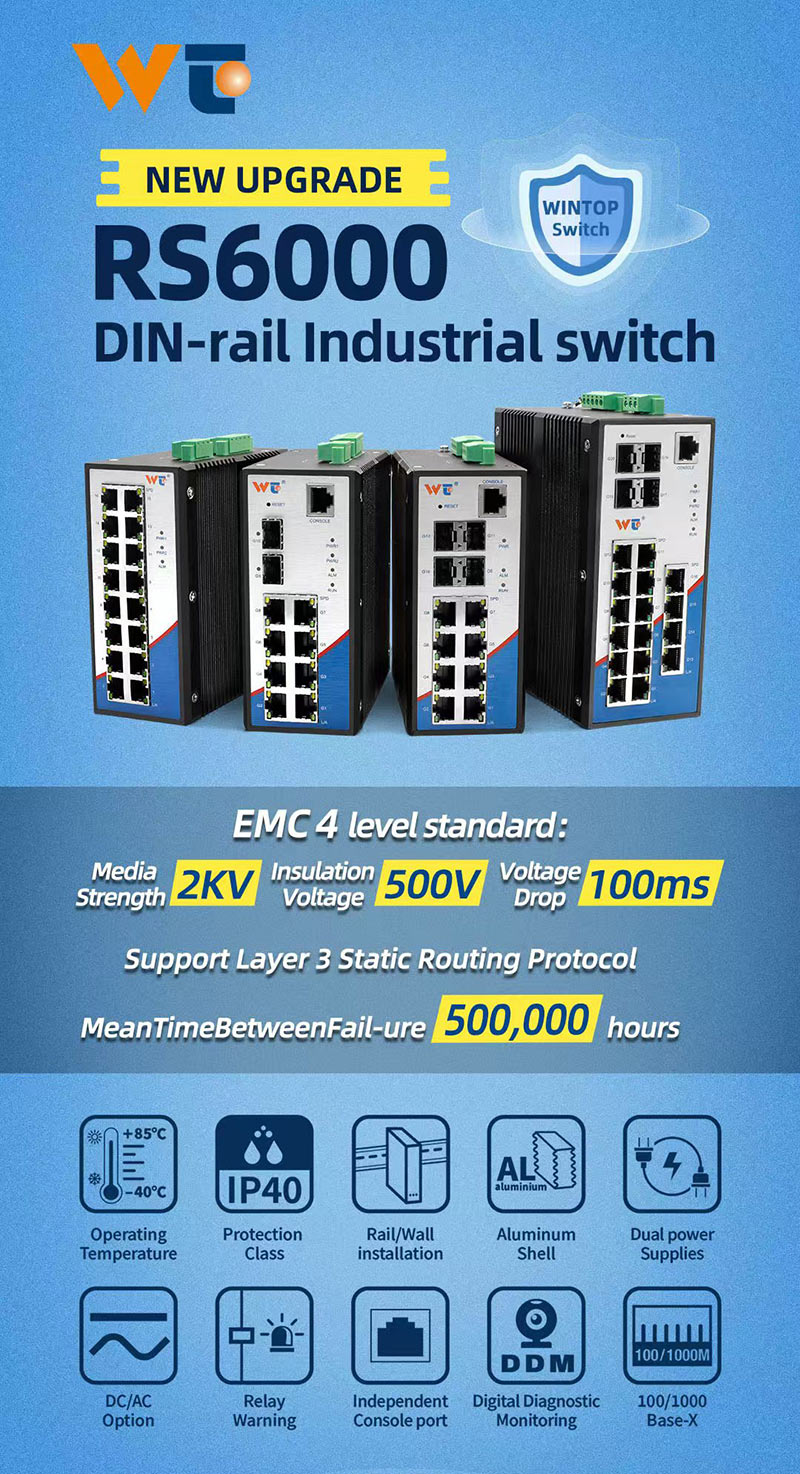Technical Analysis of Industrial Switches in AFC Systems
Imagine stepping onto a bustling subway platform during rush hour. As the crowd flows seamlessly through the gates, it's easy to overlook the intricate technology that ensures every tap, swipe, and pass is processed in milliseconds. This orchestration is the heartbeat of Automated Fare Collection (AFC) systems, and at its core lies a critical component: the industrial switch.
The Unsung Hero of AFC Systems
Industrial switches in AFC systems are the unsung heroes that facilitate the smooth operation of public transportation networks. These switches are not mere connectors; they are sophisticated devices designed to handle high volumes of data traffic, ensure security, and provide real-time communication between various components of the AFC system.
The Complexity of AFC Systems
AFC systems are complex networks comprising ticket vending machines, fare gates, validators, central servers, and more. Each of these components relies on a robust communication network to function effectively. Here, industrial switches play a pivotal role by ensuring that data flows seamlessly between these components without lag or interruption.
The Challenges of Integration
Integrating industrial switches into AFC systems is no small feat. These switches must withstand harsh environmental conditions, including extreme temperatures, humidity, and vibration. Moreover, they need to provide consistent performance despite the high volume of transactions and data they manage daily.
The Advantage of High-Performance Industrial Switches
When compared to standard network switches, industrial switches offer several advantages:
- Durability: Industrial switches are designed to operate in extreme conditions, ensuring reliable performance even in the harshest environments.
- High Throughput: These switches can handle large amounts of data traffic, which is crucial for the real-time processing requirements of AFC systems.
- Enhanced Security: With built-in security features, industrial switches protect against cyber threats, ensuring the integrity and confidentiality of fare collection data.
- Real-Time Communication: Industrial switches provide low latency communication, which is essential for synchronizing various components of the AFC system.
Real-World Applications
Case Study: Metropolitan Subway System
Consider the case of a metropolitan subway system that recently upgraded its AFC infrastructure. The previous system, relying on standard network switches, often faced delays and data bottlenecks during peak hours. By integrating industrial switches, the system not only improved its transaction speed but also enhanced overall reliability, leading to a better commuter experience.
The Role of Redundancy
In AFC systems, redundancy is key to ensuring uninterrupted service. Industrial switches offer features such as redundant power supplies and failover mechanisms, which ensure that even if one component fails, the system continues to operate smoothly. This level of reliability is crucial in public transportation, where downtime can lead to significant disruptions and dissatisfaction among commuters.
Overcoming the Technical Hurdles
Environmental Challenges
One of the primary challenges in deploying industrial switches in AFC systems is their ability to operate under varying environmental conditions. These switches are designed with ruggedized enclosures and components that can withstand temperature extremes, moisture, and physical shocks.
Data Management
Managing the high volume of data generated by AFC systems is another technical hurdle. Industrial switches come equipped with advanced data management capabilities, including Quality of Service (QoS) features that prioritize critical data traffic and ensure smooth operation.
Security Concerns
With the increasing threat of cyber attacks, security has become a paramount concern. Industrial switches incorporate advanced security protocols such as firewalls, VPNs, and intrusion detection systems to safeguard the AFC network against potential threats.
The Future of AFC Systems
As cities continue to grow and public transportation networks expand, the demand for efficient and reliable AFC systems will only increase. Industrial switches will play an even more critical role in this evolution, enabling smarter, more connected transportation networks.
Innovations on the Horizon
Emerging technologies such as 5G, IoT, and AI are set to revolutionize AFC systems. Industrial switches will need to evolve to support these technologies, offering even higher data throughput, enhanced security features, and greater integration capabilities.
Smart Cities and AFC
In the context of smart cities, AFC systems will become more integrated with other urban infrastructure, such as traffic management and public safety systems. Industrial switches will be at the forefront of this integration, providing the backbone for seamless communication and data exchange between various systems.
Conclusion
Industrial switches are the linchpins of modern AFC systems, ensuring that every commuter's journey is smooth and efficient. Their ability to handle large volumes of data, operate under extreme conditions, and provide robust security makes them indispensable in the realm of public transportation.
As we look to the future, the role of industrial switches will only become more critical, driving innovations that will shape the next generation of AFC systems. So, the next time you breeze through a subway gate, take a moment to appreciate the technology that makes it all possible.
In the world of AFC systems, industrial switches are not just connectors; they are the silent guardians of our daily commute, ensuring we get to our destinations safely and efficiently.
